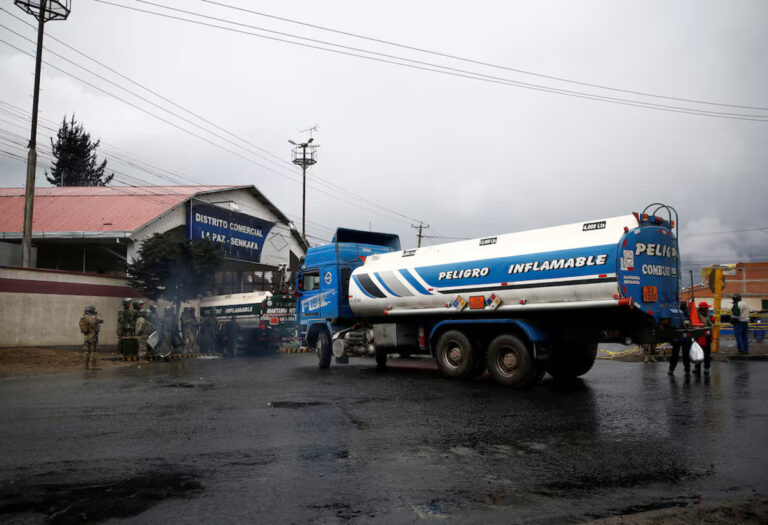🎧 Listen to This Article
Bolivia’s energy ministry announces tax cuts and expedited processes to alleviate fuel shortages and support the private sector
Bolivia’s Response to Fuel Shortages
In a move to tackle the country’s prolonged fuel shortage, Bolivia’s Ministry of Energy has introduced new incentives aimed at boosting private sector fuel imports. With local production failing to meet growing demand, the Andean nation has turned to foreign suppliers to address the gap in its gasoline and diesel supply. These new measures come as Bolivia grapples with declining oil and gas production, along with financial constraints preventing the purchase of enough foreign fuel.
Incentives to Encourage Private Imports
The government’s new decree, unveiled on December 3, 2025, includes several key provisions designed to expedite and streamline the fuel importation process. These measures focus on reducing bureaucratic hurdles and lowering the cost of imported fuels, providing relief to the agriculture, mining, and construction sectors, which are heavily reliant on fuel imports.
Some of the primary incentives include:
- Shortened Permit Approval Times: The waiting time for import permits, which previously took up to a year, will now be reduced to just five to ten days. This significant reduction in processing time is expected to enhance fuel availability and meet demand more quickly.
- Tax Relief: Tariffs on imported gasoline have been slashed to zero, making it more affordable for private sector businesses to access fuel. These tax cuts are designed to incentivize businesses to import gasoline and diesel at lower costs.
- Extended Import Periods: The decree also extends the allowable period for fuel imports and marketing activities from one year to three years. This change will give businesses more flexibility in managing their fuel stockpiles and planning future imports.
These measures are part of Bolivia’s broader strategy to address the ongoing fuel crisis that has affected multiple industries across the country.
The Fuel Shortage Crisis
Bolivia has been experiencing a persistent fuel shortage for over a year, worsened by decreasing local oil and gas production. The country’s domestic fuel output currently only covers about 15% of its diesel needs and 30% of its gasoline demand. Consequently, Bolivia has been increasingly dependent on imported fuel, which has been complicated by a shortage of hard currency to pay for these external supplies.
The reduction in local production, combined with limited foreign reserves, has intensified the need for solutions to ensure fuel availability for the private sector and the broader economy. The new incentives aim to alleviate this dependency and prevent a further strain on key industries.
The Role of Private Sector Imports
The energy ministry’s new incentives target Bolivia’s private sector, which has historically been hesitant to embrace imported fuel. Despite businesses themselves advocating for liberalized imports, many private companies preferred to purchase subsidized fuel from the state rather than sourcing it from international markets.
In an interview with local broadcaster RTP, Hydrocarbons and Energy Minister Alejandro Gallardo highlighted this issue, noting that private businesses had shown reluctance in opting for imported supplies, despite having pushed for liberalization. The government’s decree seeks to address this reluctance by making the importation process more efficient and cost-effective.
Currently, over 40 private companies have been authorized to import fuel for their own consumption. The government’s new measures aim to ensure these companies can meet their fuel needs without relying solely on the state-run supply system.
Broader Implications for Bolivia’s Economy
This push for greater private sector involvement in fuel imports comes at a time when Bolivia’s economy is facing several challenges. Agriculture, mining, and construction sectors, which are vital to Bolivia’s economic landscape, depend on steady fuel supplies to function effectively. By facilitating quicker and more affordable access to imported fuel, the government aims to stabilize these sectors, promote economic growth, and address broader supply chain disruptions.
The introduction of these measures also signals Bolivia’s broader shift toward liberalizing fuel markets, creating an environment where the private sector plays a more active role in the country’s energy sector. However, the effectiveness of these measures will depend on the private sector’s willingness to participate in the liberalized market and the government’s ability to maintain the long-term stability of the energy supply.
Conclusion: The Future of Bolivia’s Fuel Strategy
Bolivia’s decision to incentivize fuel imports highlights the government’s commitment to resolving the ongoing fuel shortage and supporting key sectors of the economy. The new incentives aim to reduce the bureaucratic and financial barriers faced by businesses, offering a faster and more affordable pathway to securing necessary fuel supplies. While these measures represent a significant shift in Bolivia’s energy policy, their success will depend on the responsiveness of the private sector and the continued management of local and international fuel production challenges.
For further details, clarification, contributions, or any concerns regarding this article, please contact us at editorial@tax.news. We value your feedback and are committed to providing accurate and timely information. Please note that our privacy policy will handle all inquiries



